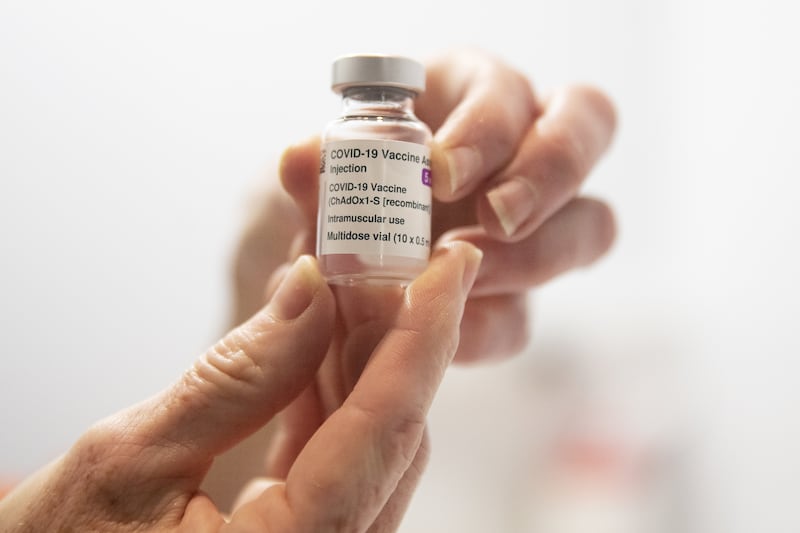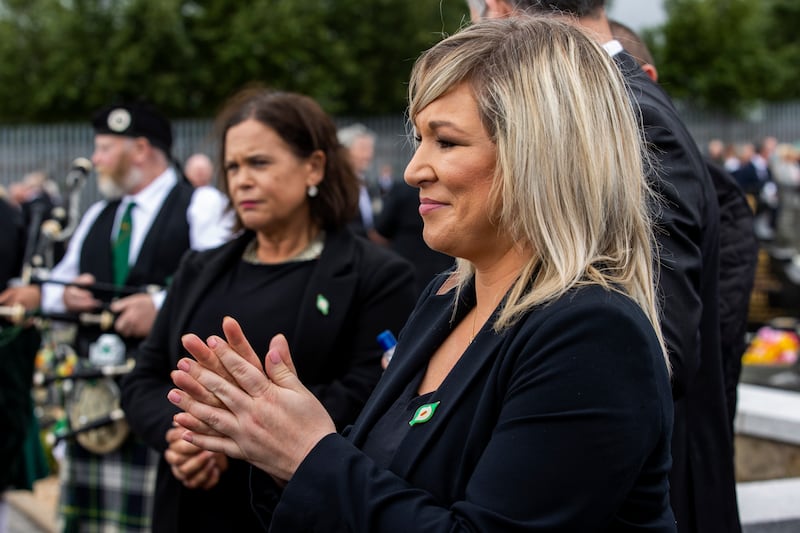Northern Ireland has recorded the highest daily number of confirmed cases of coronavirus with 2,143 people testing positive.
Six more people have also died from coronavirus with five of those deaths occuring in the past 24 hours, according to the Department of Health.
The seven-day day infection rate per 100,000 of the population is 377.3 - up from 227 in the previous seven days.
There are 492 patients with Covid-19 in hospital, 35 of whom are receiving speciailst care in Intensive Care Units (ICU) with 24 placed on ventilators. Hospital occupancy is at 96%.
In the past seven days the number of people who tested positive was 7,100, compared to 4,271 during the previous seven-day period, with 6,488 fewer people tested in the most recent period.
There are clusters in 105 care homes across the north, up from 96 yesterday.
The death toll now stands at 1,311.
Northern Ireland is in the first of a six-week lockdown with an 8pm to 6am curfew in place and people asked to stay at home and to only exercise outdoors with members of their own household or bubble. Futher information is available here
Meanwhile, there have been 13 further deaths and 1,718 cases in the Republic, it was confirmed this afternoon.
Chief medical officer Dr Michael McBride said they were “extremely troubling numbers”.
“We always knew there would be payback from the two weeks of relaxations that we had in the immediate run up to Christmas,” he told the BBC.
“There was some increase in mixing over the Christmas period and that’s understandable given the year that people have had, but those numbers are very concerning and sadly we’ll see a significant number of those work through to individuals who will be hospitalised, many of whom will get sick and sadly some of whom will die in the coming weeks.
“Our health service is going to come under very severe pressures on top of an already pressurised system and I am very concerned about what the next couple of weeks will look like.”
Dr McBride said the health service has surge plans in place which will see fewer elective procedures.
He said he expects to see case numbers peak in the coming days, and a peak in hospitalisations a week later, and a peak in intensive care cases in the week after that.
“We are going to have several pressure points on our hospital services up until the middle of January and then I think things will probably peak and will probably remain plateaued at that high level for quite a number of weeks on top of an already high level of activity.
“This is a wave on wave, we still have not got on top of the numbers from the last wave and we’re seeing very significant increases in numbers again.”
He added: “Everyone who has plans for New Year’s Eve, rethink those plans. Celebrate this New Year’s Eve within your household and with no other contacts outside your household.
“That’s what the regulations say and that’s what we all should be doing.”
Read more: Oxford/AstraZeneca Covid-19 vaccination of over 80s to begin on January 4









